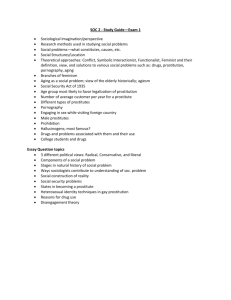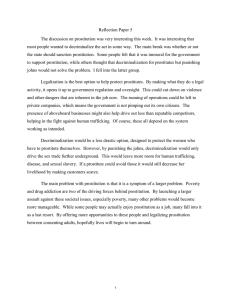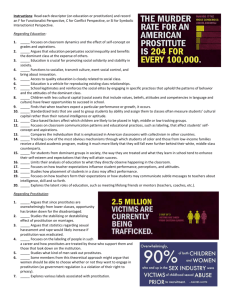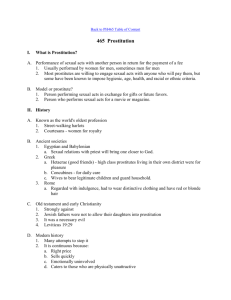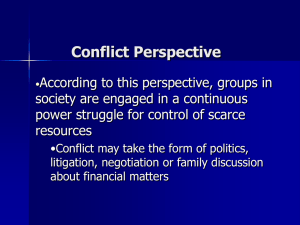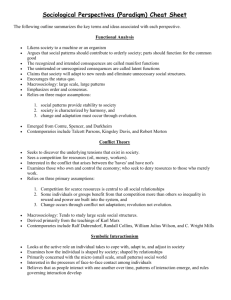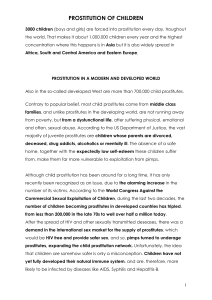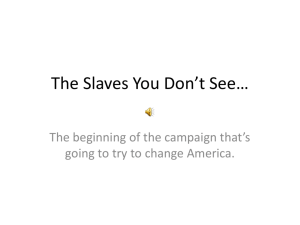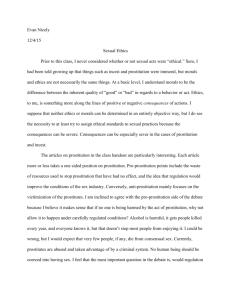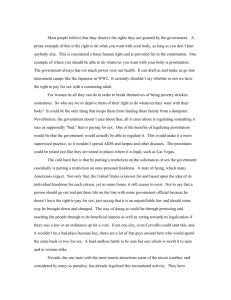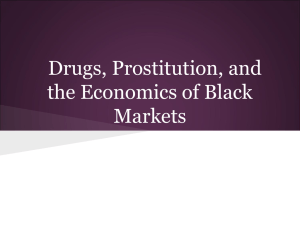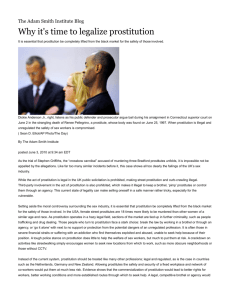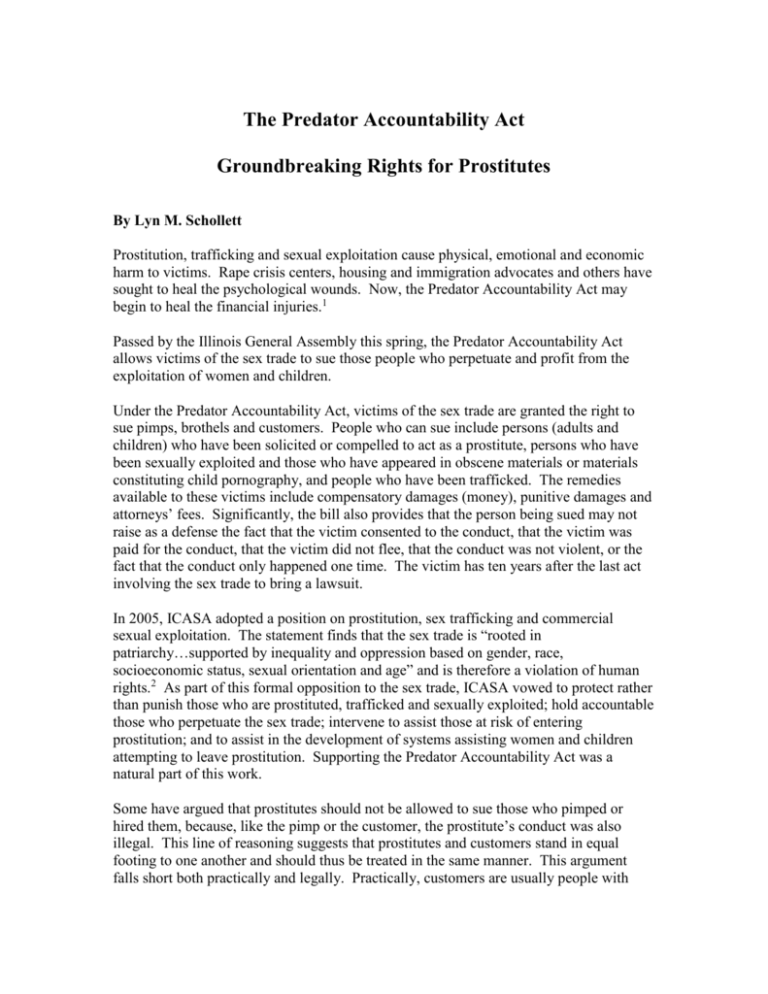
The Predator Accountability Act
Groundbreaking Rights for Prostitutes
By Lyn M. Schollett
Prostitution, trafficking and sexual exploitation cause physical, emotional and economic
harm to victims. Rape crisis centers, housing and immigration advocates and others have
sought to heal the psychological wounds. Now, the Predator Accountability Act may
begin to heal the financial injuries.1
Passed by the Illinois General Assembly this spring, the Predator Accountability Act
allows victims of the sex trade to sue those people who perpetuate and profit from the
exploitation of women and children.
Under the Predator Accountability Act, victims of the sex trade are granted the right to
sue pimps, brothels and customers. People who can sue include persons (adults and
children) who have been solicited or compelled to act as a prostitute, persons who have
been sexually exploited and those who have appeared in obscene materials or materials
constituting child pornography, and people who have been trafficked. The remedies
available to these victims include compensatory damages (money), punitive damages and
attorneys’ fees. Significantly, the bill also provides that the person being sued may not
raise as a defense the fact that the victim consented to the conduct, that the victim was
paid for the conduct, that the victim did not flee, that the conduct was not violent, or the
fact that the conduct only happened one time. The victim has ten years after the last act
involving the sex trade to bring a lawsuit.
In 2005, ICASA adopted a position on prostitution, sex trafficking and commercial
sexual exploitation. The statement finds that the sex trade is “rooted in
patriarchy…supported by inequality and oppression based on gender, race,
socioeconomic status, sexual orientation and age” and is therefore a violation of human
rights.2 As part of this formal opposition to the sex trade, ICASA vowed to protect rather
than punish those who are prostituted, trafficked and sexually exploited; hold accountable
those who perpetuate the sex trade; intervene to assist those at risk of entering
prostitution; and to assist in the development of systems assisting women and children
attempting to leave prostitution. Supporting the Predator Accountability Act was a
natural part of this work.
Some have argued that prostitutes should not be allowed to sue those who pimped or
hired them, because, like the pimp or the customer, the prostitute’s conduct was also
illegal. This line of reasoning suggests that prostitutes and customers stand in equal
footing to one another and should thus be treated in the same manner. This argument
falls short both practically and legally. Practically, customers are usually people with
financial resources, living lives relatively free of violence, and escaping the grasp of the
criminal justice system. Prostitutes are often women and children living in constant fear
violence, arrest and financial hardship, including homelessness. From a legal
perspective, the theory of in pari delictu holds that parties to an illegal contract (such as
hiring a prostitute) can only hold one another liable if those parties are equally guilty.
Again, the very coercive, oppressive nature of prostitution renders this theory
inapplicable.
Passage of this legislation was a model for collaborative advocacy. With tenacity and
compassion, the Chicago Coalition for the Homeless shepherded this bill through the
General Assembly over the course of two years. The CCH reached out to other
organizations that support women in healing from and leaving the sex trade, including
prostitution recovery groups, rape crisis and domestic violence advocates, poverty law
experts, and faith-based groups. Most importantly, CCH brought the most powerful
advocates for this bill to the table and to the Capitol: former prostitutes. These
courageous, brave women spoke passionately and eloquently about the tremendous
barriers to women leaving prostitution, and the difference that financial compensation
could make in those efforts.
After two years of tireless grassroots advocacy, copious amendments, a handful of
unfavorable newspaper editorials, and a triumphant, emotional Senate floor debate, HB
1299 passed the General Assembly this spring and awaits the Governor’s signature. This
new law promises to be a stepping stone in the path to recovery for women leaving
prostitution.
1
Text of the HB 1299, the Predator Accountability Act, is available at on the Illinois General Assembly
website, www.ilga.gov.
2
ICASA Position on Prostitution, Sex Trafficking and Commercial Sexual Exploitation at 1.
2

